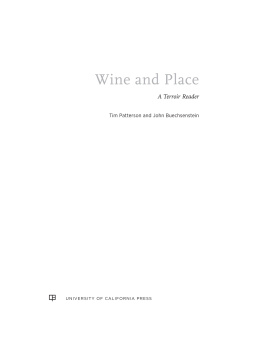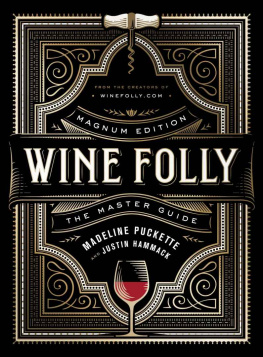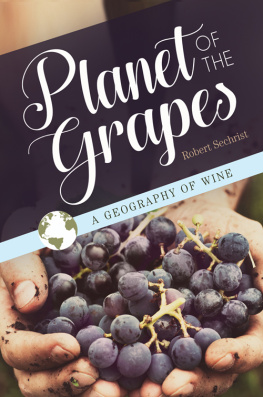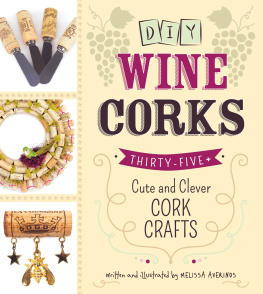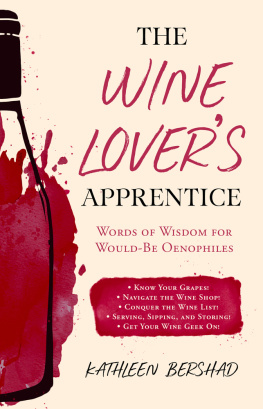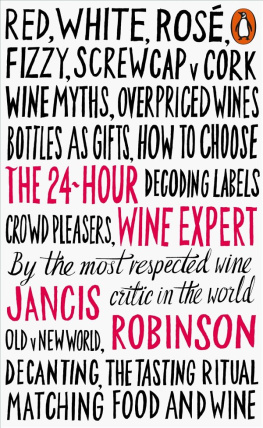STERLING and the distinctive Sterling logo are registered trademarks of Sterling Publishing Co., Inc.
Library of Congress Cataloging-in-Publication Data Available
2 4 6 8 10 9 7 5 3 1
Published by Sterling Publishing Co., Inc.
387 Park Avenue South, New York, NY 10016
2010 by Matt Kramer
Distributed in Canada by Sterling Publishing
c/o Canadian Manda Group, 165 Dufferin Street
Toronto, Ontario, Canada M6K 3H6
Distributed in the United Kingdom by GMC Distribution Services
Castle Place, 166 High Street, Lewes, East Sussex, England BN7 1XU
Distributed in Australia by Capricorn Link (Australia) Pty. Ltd.
P.O. Box 704, Windsor, NSW 2756, Australia
Manufactured in the United States of America
All rights reserved
Sterling ISBN 978-1-4027-7164-4
The Low-Cut Dress Syndrome, From MAKING SENSE OF WINE, Revised Edition, by Matt Kramer. Copyright 2003 by Matt Kramer.
Reprinted by permission of RUNNING PRESS, a member of Perseus Books Group.
Excerpt on Bella Figura, From MATT KRAMERS MAKING SENSE OF ITALIAN WINE, by Matt Kramer. Copyright 2006 by Matt Kramer. Reprinted by permission of RUNNING PRESS, a member of Perseus Books Group.
Engagement with the Future, From MATT KRAMERS NEW CALIFORNIA WINE, by Matt Kramer. Copyright 2004 by Matt Kramer. Reprinted by permission of RUNNING PRESS, a member of Perseus Books Group.
For information about custom editions, special sales, premium and corporate purchases, please contact Sterling Special Sales
Department at 800-805-5489 or specialsales@sterlingpublishing.com.
The book you are reading is one mans opinion of moonlight.
Donovan Leitch, Young Girl Blues
A JOURNALISTIC RETROSPECTIVE, UNLIKE THAT for art, is a tricky undertaking. After all, journalism is written for the moment and when that moment has passed, well, timing is everything. That said, you could make a case that a retrospective can offer both perspective and insight, illuminating where we once were and how far (or not) weve come.
I like to think that this collection of columns and essays offers such an opportunity. Most of the pieces stand on their own with little need for a comment. They have not been changed from the original, tempting though that sometimes was in the rereading. I have added a comment only when it offers context to what was originally written or completes a picture that has since come into greater perspective or richer detail.
What follows is not merely opinionwhich it certainly isbut opinion about something peculiarly ephemeral. After all, when an art critic holds forth about, say, Rembrandts Aristotle Contemplating a Bust of Homer, anyone can trot off to New Yorks Metropolitan Museum of Art and see whether the critic is full of hooey or not.
The same, however, doesnt work with wine. Not only is it a fast-disappearing item, rendering this years judgment out of date for next years vintage, but every tasters experience even of the same wine tasted at the same time is different. This makes it the slipperiest of subjects.
Precisely because of this, I have tried for more than thirty years to write about more than just mere product evaluation. Wine writing can be more than a string of fruit-and-flower taste descriptors culminating in a slam-bam-thank-you-maam score. One hopes so, anyway.
Aiding this ambition was a significant piece of good fortune: I came along at just the right time. I started writing about wine in 1976. That was the year when America began to sense the aesthetic and business possibilities of fine wine, to awaken to life beyond the jug. It was also the year of the now-legendary Paris Tasting of 1976 when American Cabernets and Chardonnays improbably vanquished big-name red Bordeaux and white Burgundies.
Ironically, the Paris Tasting of 1976 was instigated by the British, specifically an English wine merchant named Steven Spurrier who conceived and organized the event. It turned out to be the opening shot of yet another American revolution. Like his forebears, Spurrier never thoughtby his own admissionthat the Americans stood a chance. Then again, neither did we at the time.
The last three decades have seen more revolutionary change in wine than in the previous three centuries or longer. This was not just in America, mind you, but everywhere in the world, including such ancient wine cultures as France, Italy, and Spain. They also saw the rise of significant new or dramatically revived wine nations such as Australia, New Zealand, Argentina, Chile, Greece, and South Africa, to name but a few.
Journalistically, what was available to be observed was dazzling in its range: scientific advances, economics, business, real estate, restaurant life, social climbing, and collecting. And, of course, there were thousands of wines to be tasted. But above all, it was a ringside seat in watching an emerging American wine civilization.
Worth noting about this still-evolving American wine culture is how quickly it was exported. European wine producers, especially the younger ones, now freely acknowledge their indebtedness to the liberating influence of Americas precocious wine efforts.
This influence began as early as the 1980s and had a demonstrable impact on both the wines and winegrowers everywhere in Europe, especially in Italy and Spain and, to a lesser but still substantial effect, in France.
Of course, influences went both ways. Barnacle-like, we attached ourselves to anything worthwhile from Europes vast experience: their deep, tacit, traditional knowledge of grape growing and winemaking; their wines; and even their very vines. (Numerous California vineyard owners illegally carried back vine cuttings from famous European vineyards, drolly referring to these cuttings as suitcase clones.)
For our part, we exported our American openness, scientific verve, and, above all, our naive-to-the-Europeans belief that the future is our friend. While they publicly scoffed, privately they found it irresistible.
To witness all this, earn a living from it, and opine about it, well, what could have been better? It wasand still isa great privilege. A slice of the results are here for what might be called an aftertaste.

IT ALWAYS SEEMED TO ME that the clich was incorrect: Its money thats the sincerest form of flattery. Imitation is merely a flirtatious wink. This is, of course, the perspective of a freelance writer, a lifelong resident of Grub Street.
So, believe me when I express my appreciation in these Acknowledgments for the editors who backed their belief in me with their checkbooks.
Foremost among them is Marvin Shanken, the owner, publisher, and editor of Wine Spectator magazine. Among the greatest privileges of my life has been to write for Wine Spectator. Whatever misgivings its publisher (and editors) may have had about one or another of my innumerable opinionsand surely they had themMarvin Shanken has always let me have my say. I am more grateful for his ferocious integrity than I have ever previously expressed to himwhich, of course, I should have. Many of the columns in this book originally appeared in Wine Spectator. I am grateful for the opportunity to reprint them, and even more grateful for the chance to have originally published in Wine Spectator.
I am indebted to Bill Hilliard, the former executive editor of The Oregonian in my hometown of Portland, Oregon, who originally hired me as that newspapers wine critic more than two decades ago. His successor, Sandy Rowe, recently retired, was a supporter as well. I am grateful to them both. Most of all, I am indebted to Karen Brooks, who was for years my direct editor at
Next page

